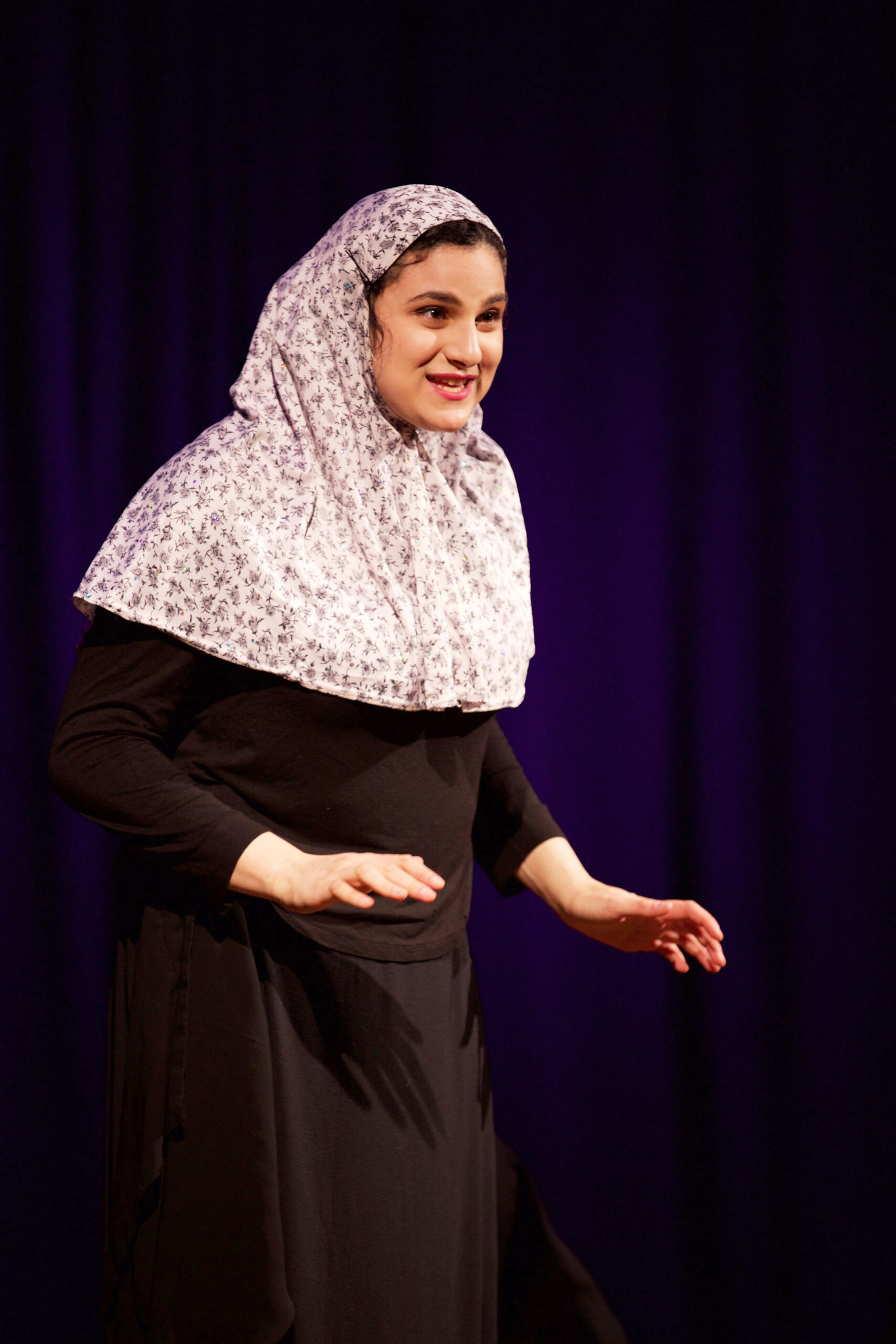‘The Poets and the Assassin’ spotlights Iranian women
February 16, 2018
 PJ Seelert
PJ SeelertDespite their centuries-long battle for human rights, the stories of Iranian and Muslim women have traditionally been overlooked in American society. Thursday night’s performance of the play “The Poets and the Assassin—Daughters of Iran” in Kresge Auditorium attempted to portray their stories and address the myth of the submissive, passive Middle Eastern woman. The event was organized by the Muslim Student Association (MSA) and co-sponsored by Student Activities, the Department of Religion and the Office of Religious & Spiritual Life.
“The Poets and the Assassin” first came to Bowdoin in March 2013. It depicts five Iranian women, both real and fictitious, who discuss their experiences as female Muslims in the Middle East and around the world. The playwright, Iranian-American Reza Jalali, is an award-winning author, human rights and refugee activist and the Honors Special Projects Coordinator at University of Southern Maine (USM). He is also the Coordinator of the Office of Multicultural Student Affairs at USM and the adviser to the MSA at both Bowdoin and Bates.
Last night’s production featured a cast of Bates students and was directed by Kati Vecsey, senior lecturer in Bates’ theater department and vocal director for theater productions. Vecsey has directed 14 of the play’s 18 productions, including the 2013 Bowdoin production.
“When I came to the U.S. in 1985, I was really surprised that most Americans, if not all, knew very little about Muslim women, women in the Middle East and women in Iran,” Jalali said in a phone interview with the Orient. “What I was hearing was part of this really common myth that Muslim societies in Iran were filled with passive, obedient, oppressed women who were living behind tall walls, would never be seen in public and had to have a male companion to leave the house.”
Jalali grew up in Kurdistan, Iran and attended college in India. After the 1979 Iranian Revolution, he applied for refugee status with the UN Refugee Agency and moved to the U.S. permanently. He recalls his childhood fondly, surrounded by “strong and empowered women” who, in large part, inspired the play and whose voices he hopes to bring into the spotlight.
“It’s not about me. It’s about my aunts, my mother, my sisters, my sisters-in-law and so on and so forth,” Jalali said.
“I want students to think about Iranian women and start to rehumanize them as fellow students, fellow community members, neighbors.”
As the play points out, Iranian women were able to attend university beginning in 1936, and, from 1993 to 2003, earned 68 percent of the country’s bachelor’s degrees. However, over the past century, especially after the 1979 revolution, these women have had to fight for their social, educational and human rights.
“I like the idea that this play adds another layer to our current understanding of Muslims, a layer of thinking of highly-educated college women in Iran early on in this last century,” said Eduardo Pazos, director of the Office of Religious and Spiritual Life. “I like the idea that it makes it more complex. To me, that’s fascinating, for us to learn to have more complex views of one another, richer views of each other’s histories and each other’s struggles.”
“I understand that I am a man using my privileges to write about women in Islam and in Iran, and that’s part of the problem, men tend to speak for women,” added Jalali. “I waited for years for someone to write this story, to tell this story, and in the end I said, ‘Well, if no one else does it, I’ll do it.’”
The show was followed by a Q&A with Jalali, Vecsey and the cast. As in 2013, students asked the playwright about his position as a man writing about women. Both cast and audience members also spoke about the universality of the play’s themes of gender, religion and oppression.

Comments
Before submitting a comment, please review our comment policy. Some key points from the policy: